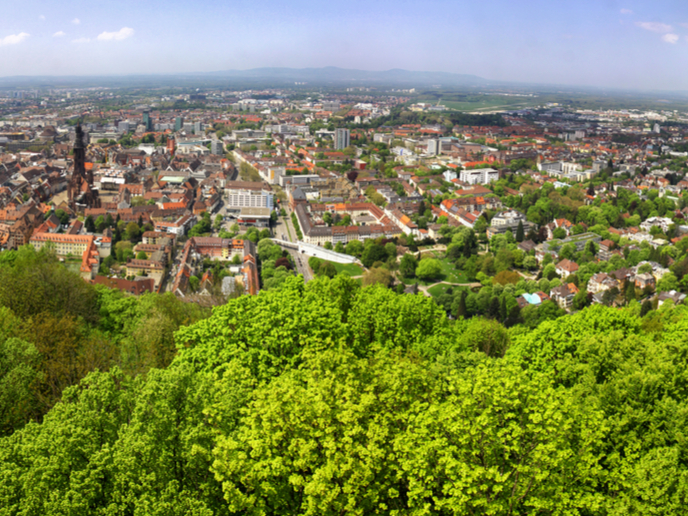Striking a balance between climate action and social equality
At a referendum held in February, residents of Freiburg im Breisgau voted in favour of building a site in their city that will combine environmental and societal targets. The plan is supported by ICLEI – Local Governments for Sustainability, a network of local and regional governments committed to sustainable development. ICLEI is one of the partners in the EU-funded C-Track 50 project that helps local and regional authorities with energy and climate policy planning to achieve climate resilience and carbon neutrality by 2050. Referred to as Dietenbach, the housing plan involves the construction and development of 6 500 apartments, schools and kindergartens, local businesses and services. Some 60 hectares will remain as open and green spaces, according to a news release by ICLEI Europe. “The climate neutral district will be the first of its kind in Freiburg and the first to be built at this scale in Germany.” Popular location A news item in ‘Renewable Energy Magazine’ explains the logic behind the new development and points to Freiburg’s rapid growth where about 25 000 more residents are expected by 2030. “This is putting increased pressure on infrastructure and public services. Housing is in high demand, with ever more people on the waiting list for emergency accommodation and rents well above the German and EU average.” The same news item emphasises that Dietenbach “has been promoted as a green, family-friendly neighborhood.” It adds: “The new district will be equipped with a modern public transport system, active mobility dominating infrastructures as well as car-sharing possibilities. Energy-efficient construction, green roofs and facades, solar energy and the use of alternative (waste) heat sources will ensure its climate-neutrality.” Quoted in the news item, Carsten Rothballer, Coordinator for Sustainable Resources, Climate and Resilience at ICLEI Europe, says: “By demanding and designing a climate-neutral district with a fifty percent quota of social housing, Freiburg is responding adequately to global and local challenges alike.” The ongoing C-Track 50 (Putting regions on track for carbon neutrality by 2050) project targets regional stakeholders, local and national authorities, market actors, and funding institutions and organisations. It was set up to mobilise and guide public authorities in 11 countries in defining long-term energy policy priorities, promoting multi-level governance, and supporting the development, financing and implementation of integrated sustainable energy and climate policy action plans, as explained on CORDIS. In the context of the project, carbon neutrality refers to “a minimum target of 80% carbon dioxide emission reductions at the local level, by promoting mainly the use of energy efficiency and renewable energy technologies, allowing for the surplus to be addressed by national policies,” according to a leaflet on the project website. The C-Track 50 project also aims to support EU policies and initiatives, such as the Global Covenant of Mayors for Climate & Energy. For more information, please see: C-Track 50 project website
Countries
Greece



